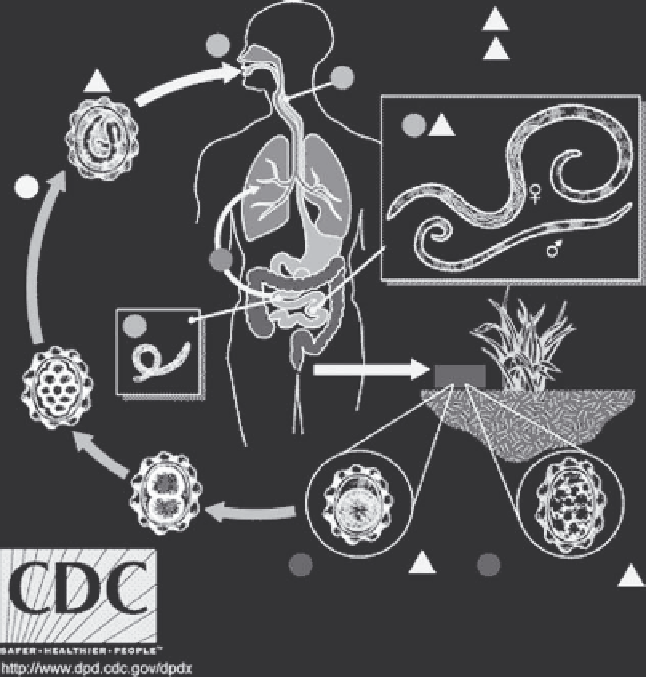Environmental Engineering Reference
In-Depth Information
= Infective stage
= Diagnostic stage
i
4
d
7
i
1
d
3
6
5
Feces
2
2
Unfertilized egg
will not undergo
biological development
d
Fertilized egg
d
FIGURE 19.5
Ascaris lumbricoides
life cycle. This organism is of special concern to the
World Health Organization because of a low infective dose. Reuse technology must stop load-
ing of eggs to the environment. Reuse management practices, such as no irrigation of crops
eaten raw or unpeeled, interrupt the infective stage pathway. Preferably, both appropriate
technology and management practices are used together. This concept applies to protecting
public health from any waterborne pathogen. Treatment and management strategies take into
account the life cycle biology of pathogens.
with fresher water. In some cases, soil structure can collapse, resulting in an imper-
meable hardpan. The level of vulnerability of a given soil is readily assessed by
qualified technicians and can be incorporated into the irrigation management plan.
OVERVIEW OF WASTEWATER ECOTECHNOLOGY
Wastewater treatment systems for reuse provide safe water for nonpotable uses.
Ecotechnology seeks to do so with simplified civil works and by reducing chemi-
cal use, operating costs, energy consumption, and wastewater biosolids production.
These goals are desirable in any engineering design. Ecotechnology cannot be used
everywhere because it often requires more land than conventional technologies. Sites

Search WWH ::

Custom Search